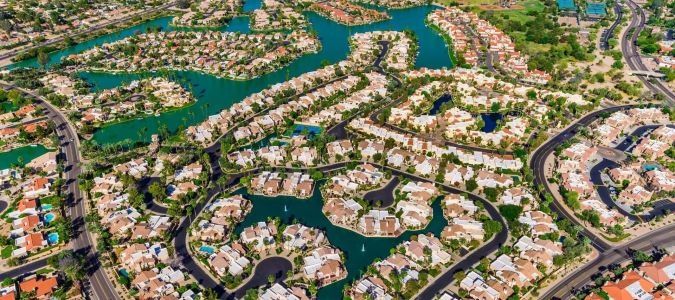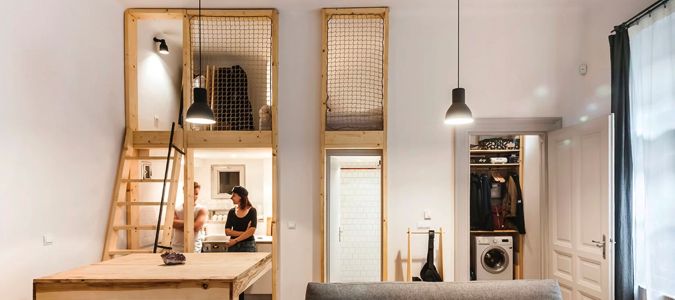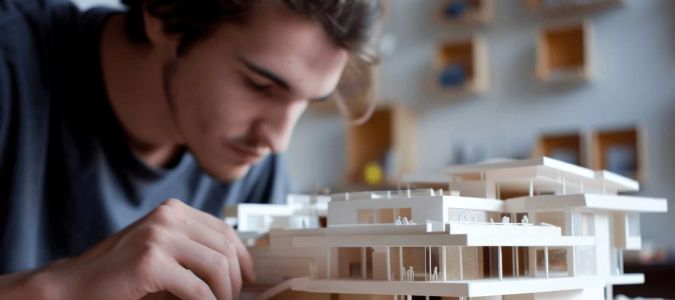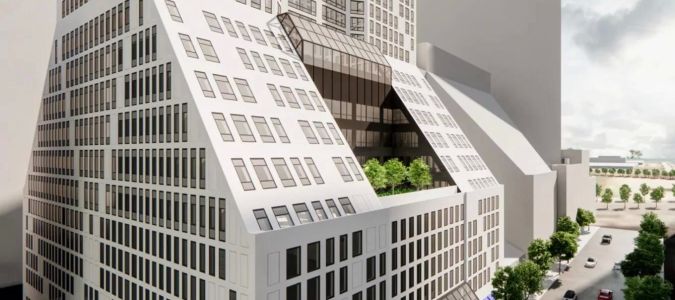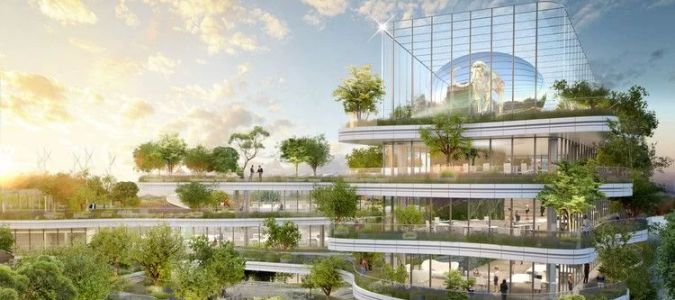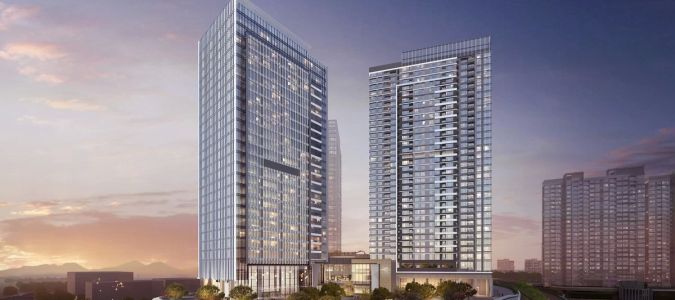Top Architecture Firms for Designing Mixed-Use Developments
- Why Mixed-Use Developments Are Important
- The Role of Architects in Mixed-Use Design
- Top Architecture Firms Specializing in Mixed-Use Projects
- Key Elements of Successful Mixed-Use Design
- Case Studies of Iconic Mixed-Use Developments
- Future Trends in Mixed-Use Development
1. Why Mixed-Use Developments Are Important
Mixed-use developments, where residential, commercial, and sometimes industrial spaces are integrated within one building or district, have become essential in modern urban planning. These developments provide a sense of community, reduce the need for long commutes, and help revitalize city centers. In my own experience living in a mixed-use neighborhood, I’ve noticed how it creates a more dynamic environment, where everything from offices to entertainment venues are just a short walk away. The growing trend for mixed-use spaces comes from the increasing demand for sustainable living, particularly in metropolitan areas. With architects at the forefront of designing these spaces, their expertise helps create environments that foster interaction, enhance accessibility, and promote environmental sustainability.2. The Role of Architects in Mixed-Use Design
Architects are pivotal in the successful execution of mixed-use developments. They not only design the layout of buildings but also integrate various functions—residential, retail, office spaces, and public amenities—into a cohesive and harmonious environment. Architects ensure that these developments meet the diverse needs of the community while maintaining a high standard of aesthetic and functional design.2.1 Balancing Functionality and Aesthetics
When I toured a recently completed mixed-use project in the heart of a bustling city, I was impressed by how well the design balanced form and function. Architects ensure that every component serves its purpose, whether it’s creating inviting residential spaces or providing retail areas that encourage pedestrian traffic. The use of creative design strategies allows for the optimization of space while contributing to the neighborhood’s architectural identity.2.2 Incorporating Sustainability
Sustainability is often a key consideration in mixed-use developments, with architects designing buildings that prioritize energy efficiency, natural light, and the use of eco-friendly materials. One of the most impactful examples I’ve witnessed was a recent mixed-use development in San Francisco, which included rooftop gardens, solar panels, and water recycling systems, all incorporated into the architecture to reduce the development's environmental footprint.3. Top Architecture Firms Specializing in Mixed-Use Projects
The successful design of mixed-use developments often requires expertise from firms with extensive experience in urban planning and sustainable design. Here are a few top architecture firms known for their work in mixed-use developments:3.1 Gensler
Gensler, one of the world’s leading architecture firms, has made a name for itself in designing innovative mixed-use spaces. Their portfolio includes high-profile projects such as the San Francisco Public Library’s mixed-use complex, which integrates public space with residential and commercial areas. Gensler’s commitment to sustainability and human-centric design has helped shape some of the most vibrant urban spaces worldwide.3.2 Foster + Partners
Known for their cutting-edge designs, Foster + Partners have also made their mark in mixed-use developments. Their projects like the Canary Wharf in London combine residential, commercial, and retail spaces in a harmonious and functional way. Foster + Partners’ designs focus on creating spaces that promote community interaction and support urban regeneration.3.3 Bjarke Ingels Group (BIG)
Bjarke Ingels Group, or BIG, is famous for its bold and innovative approach to architecture. One of their most notable mixed-use projects is the VIA 57 West in New York City. This residential complex incorporates commercial space and public areas, all under a single roof with a unique pyramid-like design. BIG’s designs often blend urban life with nature, creating spaces that are both functional and visually stunning.4. Key Elements of Successful Mixed-Use Design
Designing a successful mixed-use development goes beyond just integrating different functions. Here are a few key elements that architects must consider:4.1 Connectivity and Accessibility
One of the primary goals in mixed-use design is to ensure that all areas are easily accessible. Pedestrian walkways, integrated transportation options, and well-planned street access ensure that residents and visitors can seamlessly move between residential, commercial, and recreational spaces. The development I visited in Chicago exemplified this with its wide pedestrian paths and bike-friendly infrastructure.4.2 Public and Private Space Balance
Creating a balance between private and public spaces is crucial. Architects must design areas that promote privacy for residents while also fostering public interaction in retail or communal spaces. The design of the Embarcadero development in San Francisco strikes this balance perfectly, with private apartments and offices above and inviting public parks and cafes at street level.4.3 Flexibility and Adaptability
Flexibility is essential in mixed-use developments. Architects need to create spaces that can evolve with the changing needs of a neighborhood. This means designing spaces that can be adapted for different purposes over time. The project I saw in Berlin included adaptable commercial spaces that could be easily transformed into offices or retail units as demand shifted.5. Case Studies of Iconic Mixed-Use Developments
There are numerous iconic mixed-use developments around the world that serve as great examples of how architecture can transform a city. Let’s take a look at a few notable ones:5.1 Hudson Yards, New York
Hudson Yards is one of the most ambitious and well-known mixed-use projects in the United States. The development, which includes residential, office, and retail spaces, as well as public areas and cultural institutions, showcases how architects can blend urban design with luxury living. The Vessel, an interactive art structure, and the high-rise buildings are an excellent example of architectural innovation within a mixed-use environment.5.2 King’s Cross, London
The King’s Cross development in London is a perfect case study in mixed-use design. Once a dilapidated industrial area, it has now been transformed into a thriving urban district with homes, offices, retail outlets, and cultural spaces. The project emphasizes sustainable design, with green roofs and energy-efficient buildings. The architects behind the project have successfully revitalized a historic area while incorporating modern elements.5.3 The Marina Bay Sands, Singapore
Marina Bay Sands is one of the most iconic mixed-use developments in Asia. Designed by architect Moshe Safdie, the project combines hotel rooms, a casino, a shopping mall, and an observation deck all in one location. The stunning design, which features three interconnected towers with a unique rooftop structure, has become a symbol of Singapore’s modern skyline.6. Future Trends in Mixed-Use Development
As cities continue to grow and evolve, mixed-use developments will become even more important in urban planning. Future trends in mixed-use architecture will likely focus on sustainability, technology integration, and community-oriented spaces.6.1 Sustainability and Green Architecture
Future mixed-use developments will continue to embrace sustainability, with architects incorporating energy-efficient designs, renewable energy sources, and green building materials. Expect to see more developments that are zero-energy or carbon-neutral.6.2 Smart Cities and Technology
The integration of technology will play a significant role in the development of smart mixed-use spaces. From automated building systems to smart infrastructure, the future will see mixed-use developments that enhance convenience, reduce environmental impact, and improve quality of life for residents.If you’re interested in learning more about mixed-use development projects or are considering working with an architectural firm, 10 Jay Street offers expert design services to help bring your vision to life.



